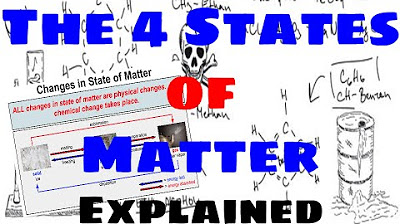Scale & Scales of Analysis [AP Human Geography Review Unit 1 Topic 6]
Summary
TLDRIn this educational video, Mr. Sin reviews Unit 1 Topic 6 of AP Human Geography, focusing on scales of analysis. He explains how different scales—from global to local—provide varying insights into geographical data. The video clarifies the distinction between map scale and scale of analysis, emphasizing the importance of understanding data organization. Using the example of selecting a location for a cancer hospital, Mr. Sin illustrates how changing scales can lead to more informed decisions based on detailed, localized information.
Takeaways
- 🌏 The concept of 'scale of analysis' refers to how information is organized and presented in relation to the Earth's surface, with different scales providing unique insights.
- 🗺️ Scales of analysis include global, state/national, sub-national, county, city, settlement, and census tract levels, each offering a different perspective on data.
- 🏛️ The term 'state' can be confusing as it can mean a country or an area within a country with political boundaries and government control.
- 🔍 When analyzing scales, it's crucial to distinguish between the scale of the map and the scale of analysis, as they can differ even on the same map.
- 📊 Data organization is key to identifying the scale of analysis, whether it's by state, county, or another regional division, independent of country borders.
- 🏥 An example of applying scales of analysis is determining the optimal location for a cancer-specializing hospital by examining global, national, and local data.
- 📈 Changing the scale or scale of analysis affects the patterns and processes observed, with local scales offering detailed specifics and broader scales showing general trends.
- 📊 Data tables, like those showing median household income, can also be analyzed at different scales, from state to county levels, to gain deeper insights.
- 🔑 Understanding scales of analysis is essential for making informed decisions, such as identifying areas with the highest need for specific services or facilities.
- 📚 The video script is part of a review for AP Human Geography, emphasizing the importance of this concept in geographical analysis and decision-making.
- 📘 Additional resources like review packets and study guides are available for students to enhance their understanding of AP Human Geography topics.
Q & A
What is the main topic of the video script from Mr. Sin's channel?
-The main topic of the video script is an overview of Unit 1, Topic 6 of AP Human Geography, focusing on scales of analysis and how they affect the organization and interpretation of geographical information.
What does the term 'scale' refer to in the context of geography?
-In geography, 'scale' refers to the ratio of a distance on a map to the corresponding distance on the Earth's surface, and it determines the level of detail and generality of the information presented.
What are the different scales of analysis mentioned in the script?
-The different scales of analysis mentioned are global, regional, national, sub-national or sub-state, county level, city or settlement, and census tract.
What is the difference between 'scale' and 'scale of analysis'?
-While 'scale' refers to the representation of the Earth's surface on a map, 'scale of analysis' focuses on how the data is organized and presented, determining the level of detail and the geographic scope of the information.
What is the purpose of understanding scales of analysis in geography?
-Understanding scales of analysis is crucial for organizing and interpreting geographical data effectively, allowing for the identification of patterns and processes at different geographic levels.
Why might the term 'State' be confusing in the context of the United States?
-The term 'State' can be confusing in the United States because it can refer to both an individual state within the country and the country itself when discussed on a global scale.
How does changing the scale of analysis affect the patterns and processes observed in geography?
-Changing the scale of analysis allows for the observation of different patterns and processes. A local scale provides specific details, while national and global scales reveal broader patterns across various geographic locations.
What is an example of how scales of analysis can be applied in a practical scenario?
-An example is deciding where to build a new cancer-specializing hospital by analyzing maps and data at different scales, from global to local, to determine areas with higher cancer rates and specific needs.
How does the script illustrate the difference between a global scale map and a national scale map in terms of scale of analysis?
-The script uses maps to illustrate that a global scale map can have a national scale of analysis if the data is organized by state boundaries, whereas a global scale map with a global scale of analysis shows data that is not connected to any state's border.
What is the significance of understanding the relationship between map scale and scale of analysis?
-Understanding the relationship between map scale and scale of analysis is important for accurately interpreting geographical data and making informed decisions based on the level of detail and geographic scope relevant to the analysis.
How can data organization at different scales of analysis affect decision-making?
-Data organization at different scales of analysis can affect decision-making by providing varying levels of detail and geographic scope, which helps in identifying specific areas or patterns that are most relevant to the decision at hand.
Outlines

This section is available to paid users only. Please upgrade to access this part.
Upgrade NowMindmap

This section is available to paid users only. Please upgrade to access this part.
Upgrade NowKeywords

This section is available to paid users only. Please upgrade to access this part.
Upgrade NowHighlights

This section is available to paid users only. Please upgrade to access this part.
Upgrade NowTranscripts

This section is available to paid users only. Please upgrade to access this part.
Upgrade NowBrowse More Related Video

The Four States of Matter - Explained

Lab Equipment - Explained

3. Gr 11 Life Sciences - Population Ecology - Theory 3 Mark Recapture Method

4. Gr 11 Life Sciences - Population Ecology - Worksheet 1

PENJASKES KELAS X - SOFTBALL

Introduction to Culture [AP Human Geography Review Unit 3 Topic 1]

Menentukan Mr ( massa molekul relatif )
5.0 / 5 (0 votes)